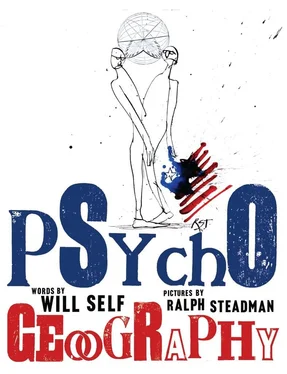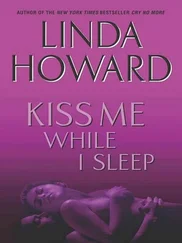That was on my first radial walk, out from the London epicentre. I picked Jason up at Pickett’s Lock, near Edmonton, and headed on with him, up into Epping Forest. It was a hot afternoon in early July 2003, and we talked and walked. I’d known Jason for four years, having met him the first day I’d cleaned up from drugs. He was on the same long walk back to some semblance of sanity — but he kept lagging behind, straying into methadone swamps and dopey thickets. His health was already poor — hepatitis, diabetes — he really needed to keep up. On that glorious, dappled afternoon we were in step and he told me much about his life. Then, like Nick Papadimitriou, Jason was abandoned — the first stage of a rocket I’d employed to exit the surly gravity of the conurbation. I left him at Epping Tube Station, and while I blasted on into the outer space of Essex, he fell back, end over end, and splashed down into the oceanic city.
I remember looking back at Jason standing on the platform, the PA announcements of westbound trains crackling through the gloaming. The spark of electricity and the hum of the rails. I saw him a few times after that — but only a few. He died, trekking in Nepal two years later, and was cremated in a hill village. Why drag his body back to London? He was never especially happy here. Places, I often feel, choose people, not the other way round. Tourism is a search for a place that will embrace you; sex tourism a dreadfully wrongheaded transference.
In truth, I get bored in Manhattan. It’s the late spring of 1992, and I’m sitting in an oh-so-hip loft apartment off Spring Street, my head tilted up at an odd angle, watching through a transom as the rain falls: streams of water as thick and iron-black and oblique as the fire escapes hanging off the fronts of the buildings across the way. Sitting there, stoned on weed, and feeling the whole dead weight of my dead mother’s misery and frustration, feeling it as if I’m wearing hand-me-down lead boots and a copper helmet. Suited in my mother’s claustrophobia, breathing her stale anxiety, I’m diving down, deep beneath New York, and it’s pressuring me, these millions of tons of masonry, of steel, of iron and glass. It’s on my back, this Platonic ideal of a city, which always strikes me as a single, undifferentiated block, from which individual skyscrapers have been carved out.
Flash forward to Now + four days. Another friend, the novelist Zoë Heller, who, after flying back and forth over the Atlantic for some years, roosted in Manhattan in 1994, and now has an American husband and children, expostulates ‘Dull as ditchwater!’ She is in her loft apartment, hard by the Holland Tunnel, but referring to the London skyline.
I beg to differ, both now and then. Caroming in from JFK, over the Queensboro Bridge, that great berm of mud-brown housing — public projects and private apartments — that Robert Moses bulldozered into being from 23rd Street to the Brooklyn Bridge, has always struck me as being quite as dull as ditchwater. Looking as it does, as if all the interwar, redbrick housing estates that London has to offer, have been cemented together and raised up into a mighty, tedious baffler. The chrome watchtowers and steely spires of Midtown are mere pinpricks set beside this! And besides, when I’m in Midtown I feel even deeper down, and the rain falls from an even greater height. In London the rain is, at worst, only one or two storeys high, but there. .
I remember that afternoon in SoHo because it was on my first, conscious trip to New York; and even an experienced apathete such as myself — the shirker of the Taj Mahal, the dodger of the Alhambra — was still struck by how inappropriate this seemed. Having body-swerved the city in the late 1970s and throughout the 1980s, when its colonisation by Brits posh and penurious alike made the notion of going there myself altogether too much .
There was this justification and there was also my mother’s lock on New York, her proprietorship. When you’re small your parents loom large, and their places must, congruently, be smallish. All of New York was Mother’s fiefdom — she its absentee landlord, a rentier living off the glamorous capital she’d acquired there in the 1940s and 1950s. She went every year, sometimes twice. She had a lover there and therefore New York, far from being the city that never slept, was the city where my sexagenarian mother went to sleep. Perhaps retaining it, thus, unrealised save for episodes of Kojak and the car chase sequence in The French Connection , was a way of not having to visualise her at it ?
But the Brits in New York, with their gee-whizz and their oh-my-gosh gush, and their wide-eyed approbation of all things big, expansive and American. I could do without it — and them. Without even troubling to go there I knew that I wouldn’t share their enthusiasm. In part, this had to be political: the Brits who went to New York at that time were in flight from what they viewed as a failed state, a bankrupt rust bucket that had taken on IMF pilots. They brought back cocaine, chewing gum and Monetarism; the latter an economic doctrine of such tautologous vacuity that it reduced the mental states of an entire class of people to a series of lower case letters (where ‘i’ = inflationary wage claims).
Yet also it was my own childhood experience. When my father took a sabbatical at Cornell in the mid-1960s, I had a year at grade school in Ithaca, upstate New York. This was an era, when, to a short-trousered, bat-eared boy from un-centrally heated England, the States were pure futurism: multiplex cinemas, automatic cars, electric carving knives, Orange Julius spearing the moment with his pitchfork. This early exposure to America did for it as a new-found-land, made it part of the furniture of my psyche, coextensive with Aertex shirts and the smell of brake blocks on new bicycles bought at Kilburn High Road. So, having pledged allegiance to the flag for a year, over the subsequent twenty-five I ran it down the flagpole. No one saluted.
Then, in 1988, Mother died, at the Royal Ear Hospital in London, and perversely, as the World Spirit of urbanity sped eastwards to merge with her dispersing and troubled psyche, so I found myself, after a further half-decade, at last able to head west. To that loft apartment in SoHo; to New York, where on the previous day I had ascended to the 107th floor observation deck of the South Tower of the World Trade Center. There I had looked north to see the grey verge of Manhattan, lying between the dull waters of the Hudson and the East ditches.
Throughout the remainder of the 1990s and into the new millennium, I had continued to visit New York; but these were the exact opposite of the radial walks that now score my presence, deeper and deeper into the matter of London. These were the travelling equivalent of skipping stones, with me a flat pebble, flipped out of the sky over Long Island, bouncing once in New York, then shooting off at a crazy angle to dip down in Boston, then Chicago, then Minneapolis, and so on, across America. Touching the meniscus of each city long enough to read from a few pages of one of my books, scrawl a few dedications, spout a few press interviews and get drunk.

I found myself in Boston on 20 May 1993, ‘Cheers Day’. As the last episode of the folksy barroom sitcom aired, and companionable crowds celebrated, I was alone in my hotel room drinking miniatures. Very few people knew my name. This was the shape of my times in the USA: seven-, fourteen- and twenty-one-city book tours, intended to put my product ‘on the wall’, as the American marketing parlance would have it. There were other trips Stateside to write features, and even some purely to see my half-brother, Nick Adams, who teaches at Vassar College; but mostly, I went there to work.
Читать дальше













